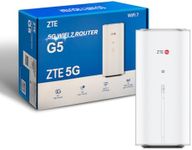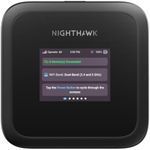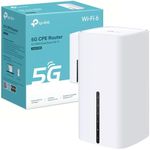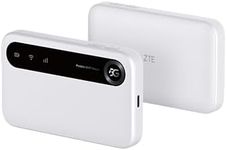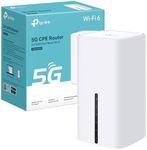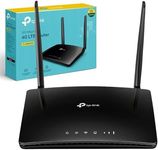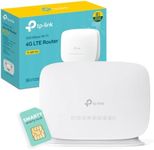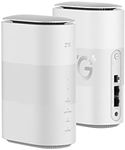Buying Guide for the Best Wifi Router With Sim Cards
Choosing the right WiFi router with SIM card capability can be a bit daunting, but with the right knowledge, you can find the perfect fit for your needs. These routers are great for areas with limited wired internet options or for those who need a portable internet solution. Here are some key specifications to consider when making your decision.Network CompatibilityNetwork compatibility refers to the types of cellular networks the router can connect to, such as 3G, 4G LTE, or 5G. This is important because it determines the speed and reliability of your internet connection. If you need high-speed internet for streaming or gaming, look for a router that supports 4G LTE or 5G. For basic browsing and email, 3G might be sufficient. Check with your mobile carrier to ensure the router is compatible with their network.
SIM Card SlotThe SIM card slot is where you insert your mobile carrier's SIM card to access the internet. This is crucial because it allows the router to connect to the cellular network. Make sure the router has a standard SIM card slot that fits your carrier's SIM card. Some routers may support dual SIM cards, which can be useful for balancing data usage between two carriers or ensuring a backup connection.
WiFi StandardsWiFi standards, such as 802.11n, 802.11ac, and 802.11ax, determine the speed and range of your wireless network. This is important for ensuring fast and reliable connections for your devices. 802.11n is older and slower, suitable for basic internet use. 802.11ac offers faster speeds and better range, ideal for streaming and gaming. 802.11ax, also known as WiFi 6, provides the latest technology with the highest speeds and best performance in crowded environments. Choose a standard based on your internet usage and the number of devices you plan to connect.
Ethernet PortsEthernet ports allow you to connect wired devices directly to the router for a more stable and faster connection. This is important for devices that require a lot of bandwidth, like gaming consoles or desktop computers. Routers typically come with a few Ethernet ports, but if you have multiple wired devices, look for a router with more ports. Consider your setup and how many devices you need to connect via Ethernet.
Antenna QualityThe quality and number of antennas on a router affect the strength and range of the WiFi signal. This is important for ensuring good coverage throughout your home or office. Routers with multiple external antennas generally provide better coverage and stronger signals. If you live in a large house or have thick walls, look for a router with high-gain antennas. For smaller spaces, a router with internal antennas may be sufficient.
Battery LifeBattery life is a consideration if you need a portable router that you can use on the go. This is important for ensuring you have internet access when traveling or in areas without power. Look for routers with long battery life if you plan to use it frequently while mobile. If you primarily use the router at home or in an office, battery life may be less critical, and you can opt for a model that stays plugged in.
Security FeaturesSecurity features protect your network from unauthorized access and cyber threats. This is crucial for safeguarding your personal information and ensuring a secure internet connection. Look for routers that offer WPA3 encryption, firewall protection, and guest network capabilities. If you handle sensitive data or have multiple users, prioritize routers with robust security features.

